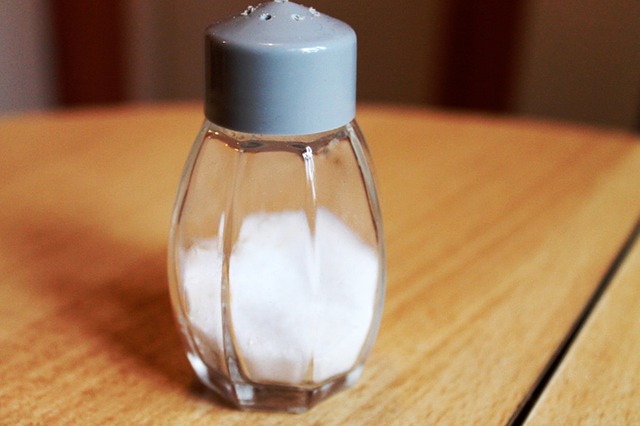
There's a warning an additional gram of salt a day could lead to a 25% rise in obesity among adults and children.
New analysis suggests there's a direct link between salt intake and an expanding waistline.
Doctors are warning that an escalating obesity epidemic will cripple the NHS if the increase in diet related issues aren't stopped immediately.
The Government is being urged to act now by applying pressure on the food industry to achieve a 30% reduction in population salt intake.
Professor Graham MacGregor, Professor of Cardiovascular Medicine at Queen Mary University of London and Chairman of Consensus Action on Salt & Health said: “The food we eat is now the biggest cause of ill health through its high salt, fat and sugar content added by the food industry. High blood pressure and obesity both lead to the development of cardiovascular disease, stroke, heart attacks and heart failure, which are the commonest causes of death and disability in the UK.
“Obesity also predisposes to type 2 diabetes, which further increases the risks of cardiovascular disease and can lead to severe complications. Such an epidemic will cripple the NHS if the increase in these diet related issues are not stopped immediately. The government and the food industry now need to take much stronger action.
"Unfortunately the previous government handed power back to the food industry with the Responsibility Deal which has completely failed to tackle these issues in the way that it needs to be.”
Current guidelines suggest we should be eating no more than 6g salt a day but the latest statistics show we are eating far more than we require (8.1g/day). Collaborative efforts between the government and food industry however have led to progressive reductions in salt intake, resulting in a reduction in stroke and heart disease events and deaths but experts say further reductions need to be made.
Sonia Pombo, Campaign Manager for CASH, added: “This paper highlights yet another important reason to cut back on your salt intake. The food industry was working hard to reduce levels of salt levels before the Responsibility Deal and as a result average salt intakes were going down. We now need a much more robust mechanism to continue to reduce salt and to tackle the huge amounts of sugar in foods and soft drinks as well as reduce saturated fat. The responsibility lies predominantly with the food industry, where most of our salt intake comes from, but people can also make a difference to their health by reading the labels and opting for foods lower in salt, saturated fat and sugars.”
Victoria Taylor, Senior Dietitian at the British Heart Foundation, said: “It’s well established that we should be reducing the amount of salt we eat to help avoid high blood pressure, a risk factor for cardiovascular disease and the link between salt intake and obesity identified in this research could be another reason for us to do this. But more research is needed to understand what might be the reason for this link. Although the amount of salt we are eating has reduced in recent years, as a result of reformulation of manufactured foods, we are still exceeding recommended maximums.
“Most of the salt we eat is already in the foods we buy, which is why checking nutritional information on packs to make sure we are making the healthiest choice is important to help limit the amount of salt we are eating.”


 Cupar Hearts win Scottish Amateur Cup Final
Cupar Hearts win Scottish Amateur Cup Final
 Financial support to be offered to flood-hit Cupar
Financial support to be offered to flood-hit Cupar
 Man, 64, in hospital after serious assault in Inverkeithing
Man, 64, in hospital after serious assault in Inverkeithing
 15°C
15°C
 16°C
16°C